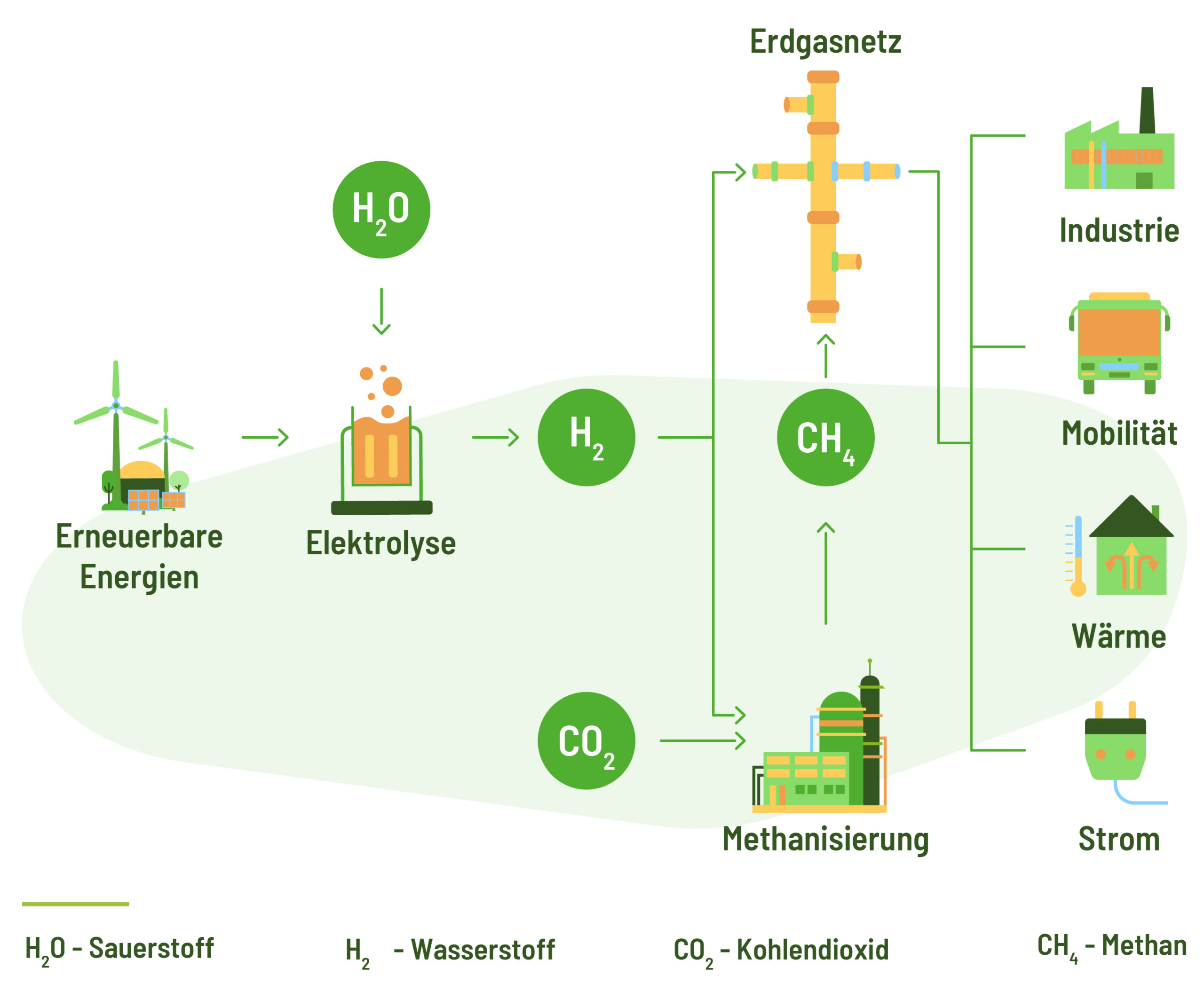Shaping the future of energy – with hydrogen, green gases and intelligent sector coupling
We as transmission system operators are at the heart of a secure, climate-neutral and affordable energy supply for Germany.
The key to this lies in intelligently dovetailing the supply of electricity and molecules, in the use of low-carbon and climate-neutral gases and, in particular, in the development of a hydrogen network based on the existing natural gas infrastructure.
More energy security from and for Europe
Europe’s security is inextricably linked to the security of its energy supply. Those who are dependent on others make themselves vulnerable – be it economically, politically or strategically. The supply disruptions and attacks on the energy infrastructure surrounding Russia’s war in Ukraine have clearly demonstrated this dependency. Germany is and will remain an energy importing country in the future. It is therefore important to ensure the diversification of our energy supply. Against this backdrop, Europe must work together to find solutions to the issue of energy security and a secure energy supply and act decisively and quickly to safeguard its sovereignty.
- 45,8% – Renewable Energies
- Wind Power
- Hydropower
- Solar Energy
- Biomass
- Other
- 31,7% – Fossil Fuels
- Natural Gas
- Coal
- Other
- Oil
- 22,8% – Nuclear Power
Those who produce more energy themselves are less susceptible to blackmail. There is plenty of sun, wind and hydropower in Europe. As early as 2023, 45.3% of total electricity consumption in the EU came from renewable sources – and the trend is rising.
The hydrogen economy can help to reduce dependencies. Particularly in sectors that cannot be directly electrified, hydrogen produced in the EU can serve as a substitute for imported natural gas, oil and coal, not least in industry.
Even if Germany will be dependent on hydrogen imports despite its own high electrolysis expansion targets: Overall, there is great potential for Europe to supply itself from domestic, renewable production.
Decarbonization of the industry
The competitiveness of energy-intensive industries in Germany stands and falls with hydrogen ramp-up. But the ramp-up will also play a key role in the future of mobility and in parts of the heating supply.
The development of the hydrogen market is a joint task. All stakeholders are called upon to actively drive forward the hydrogen ramp-up. This requires a supportive framework to trigger private investment along the entire H2 value chain.
Flexibility and stability through sector coupling
In addition to hydrogen, other climate-neutral gases such as biomethane and synthetic methane also contribute to decarbonization. The gases can be fed into the existing gas grid and used flexibly wherever energy is needed. Green gases can be stored and transported. They therefore support the integration of volatile renewable energies.
There are currently around 1,000 biogas plants in Germany alone.
By intelligently linking electricity and gas supplies, renewable energies can be used more efficiently. Power-to-gas technologies convert green electricity into hydrogen or methane, which can be stored in the existing gas grid. These long-term storage facilities ensure the greatest possible efficiency and security of supply, even with fluctuating electricity generation. This flexibility is crucial for a sustainable and stable energy system of the future.

Affordable heat for everyone
There is great potential for climate protection in the heating market. Especially in existing buildings, where electrical solutions often reach their limits, green gases offer a realistic and affordable alternative. Unlike the electricity grid, the gas grid has always been designed for the seasonal nature of the heating market. With hydrogen and other climate-friendly gases, our grids can also contribute to securing the heat supply in the long term.
Downloads
Natural gas remains important
Natural gas will remain a cornerstone of our energy supply for many years to come. Above all, natural gas plays an important role in the provision of secure power in the electricity system. Maintaining and expanding the gas infrastructure in line with demand is a prerequisite for the security of the electricity supply in order to compensate for fluctuating generation from renewable energies.
We also continue to need an efficient natural gas infrastructure for industry during the transformation phase. Investments in the natural gas network will therefore continue to be necessary until the transition is complete and the framework conditions must allow for continued economic operation.
